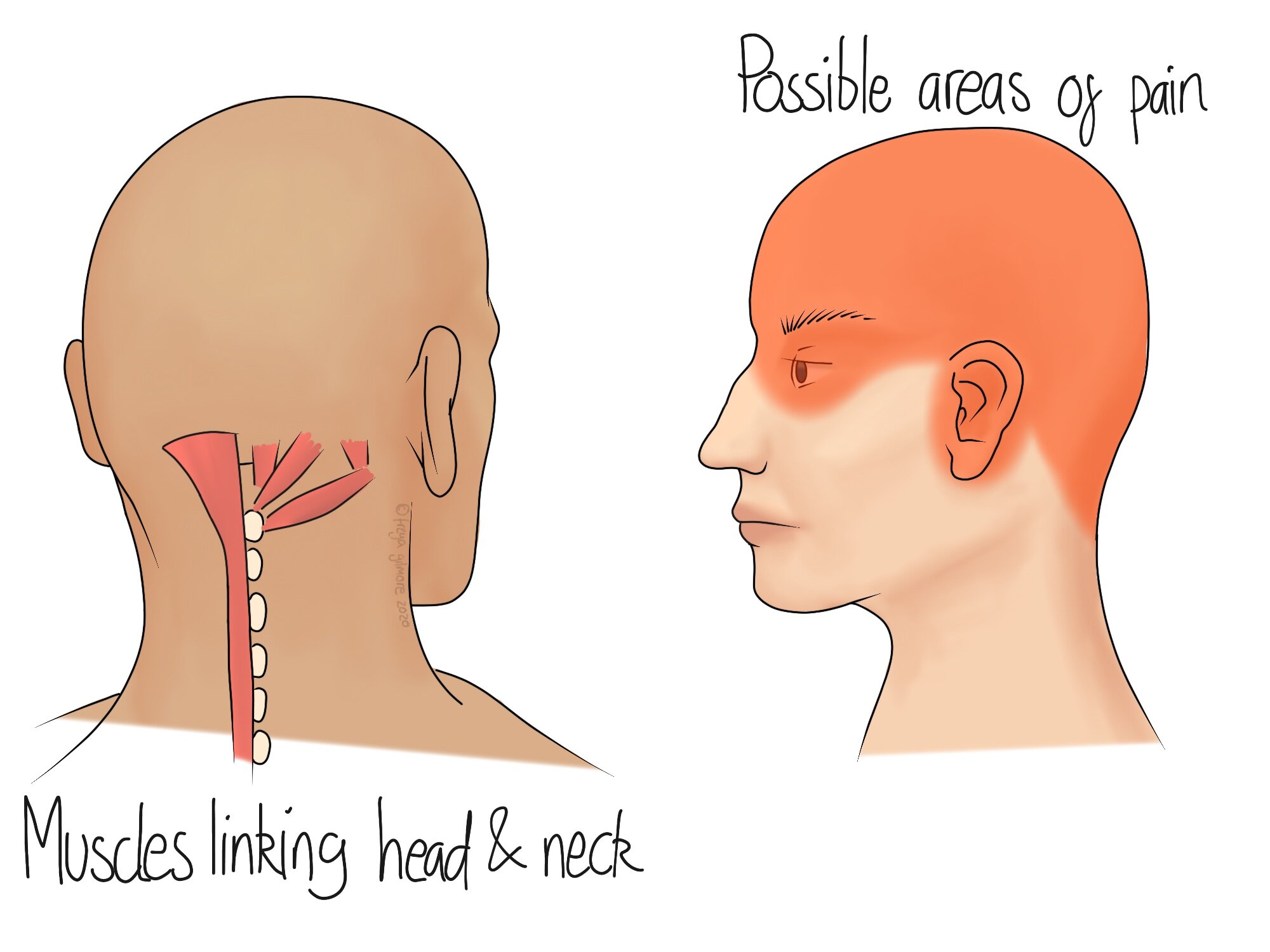Cervicogenic Headaches
Osteopaths are primary healthcare practitioners, meaning we can diagnose as well as treat. Headaches can be notoriously difficult to pin down, but cervicogenic headaches have a few strong hallmarks.
“Cervicogenic” just means “from the neck”. So cervicogenic headaches are nothing to do with the head itself. Muscles, joints, or nerves can refer pain to the head when irritated. Like with lower back pain, a combination of these structures may play a role.
A significant factor in headaches is stress and subsequent tension. Changes in breathing and raised shoulders during stressful periods can affect the neck. In turn, this can lead to headaches that don’t fully resolve without managing the muscles of respiration.
Symptoms
Pain on one side of the head, spreading from the neck or back of the head towards the front
Pain does not switch sides
Very unusual to have migraine-type symptoms (visual aura, nausea, dizziness)
Pain intermittent at first, becoming more continuous
Cervicogenic headaches are relatively short lived, but may become more persistent over time.
Headaches can be difficult to diagnose, but cervicogenic headaches are some of the easier ones to identify. You don’t need to see your GP before coming to us with a headache, but we will refer back to them if needed.
Your Osteopath’s Role
If your headaches are recurrent, we want to find the cause. Often there’s more than one reason, and typically tight neck muscles will be involved in some way. Other causes could include a problem with the joints in the neck, such as stiffness or arthritis; or an irritated nerve. There is also the question of why this has happened in the first place. Does it follow an increase in driving that’s straining the neck? Or has it been slowly building for a long time? We will cover these points in your appointment to get to the bottom of it.
Headaches that come and go over three months or more are classed as chronic. At this point we manage things differently, as the science of pain is different.
We also want you to be able to manage better when headaches hit. Your osteopath may give you exercises to build on the progress made in treatment. They may also advise the use of heat, ice, or a spiky ball to help relieve symptoms.
If you suffer from cervicogenic headaches, make an appointment with us today.

